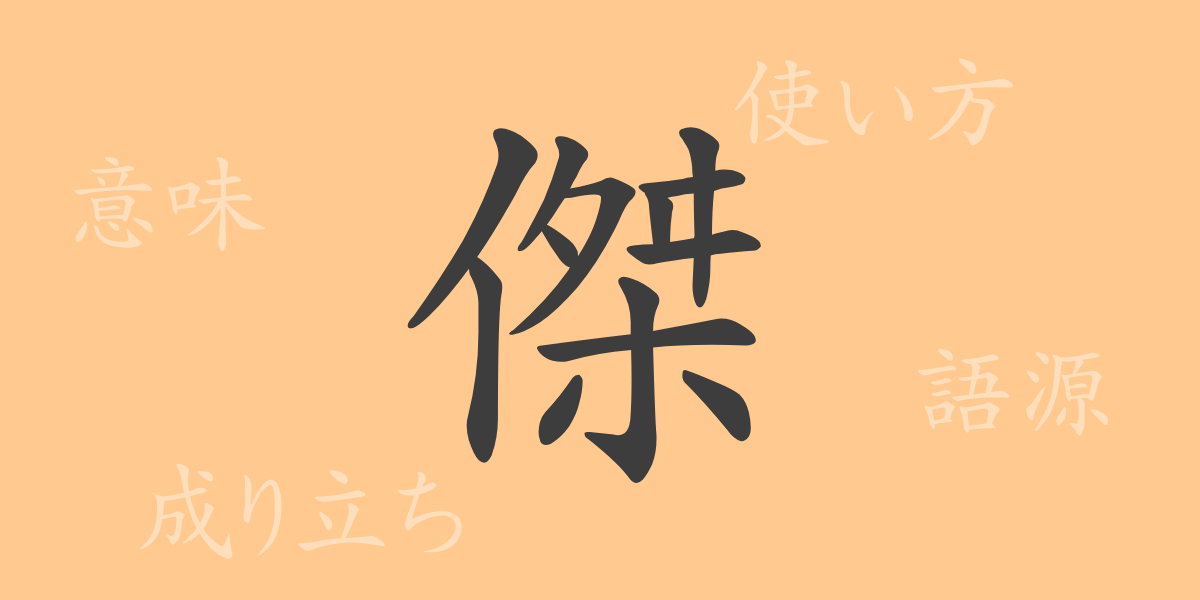The meaning and charm of a single kanji character are deeply rooted in its form and history. Among the commonly used kanji in Japan, “傑” (けつ, ketsu) stands out as a particularly powerful and distinctive character used to denote outstanding people or things. In this article, we will delve into the origins, meanings, and usage of “傑” (けつ, ketsu), as well as explore commonly used idioms and phrases that feature this intriguing kanji.
Origin of 傑
The kanji “傑” (けつ, ketsu) evolved from ancient Chinese pictographs into a phono-semantic compound character. The radical “亻” (にんべん, ninben) signifies “person,” indicating a concept related to humans. The component “桀” refers to Jie, the last king of the Xia Dynasty in ancient China, symbolizing a person of remarkable individuality and characteristics. Together, these elements form the kanji “傑” (けつ, ketsu).
Meaning and Usage of 傑
The kanji “傑” (けつ, ketsu) means “outstanding” or “superior” and is often used to describe people. For instance, someone with exceptional talent or achievements in a specific field might be called a “傑物” (けつぶつ, ketsubutsu), and someone or something that stands out remarkably is described as “傑出” (けっしゅつ, kesshutsu). Thus, “傑” (けつ, ketsu) is used to denote excellence and distinction.
Readings, Stroke Count, and Radical of 傑
In Japanese, the kanji “傑” (けつ, ketsu) has the following basic information:
- Reading: The on’yomi (音読み) reading is “ケツ” (けつ, ketsu), and it has no significant kun’yomi (訓読み) reading.
- Stroke count: “傑” (けつ, ketsu) has a total of 13 strokes.
- Radical: The radical is “亻” (にんべん, ninben), which signifies “person.”
Idioms, Proverbs, and Phrases Using 傑
There are numerous idioms, proverbs, and phrases in Japanese that include “傑” (けつ, ketsu). Here are a few examples:
- 傑作 (けっさく, kessaku): A masterpiece or an exceptionally great work.
- 傑出 (けっしゅつ, kesshutsu): To stand out remarkably or be exceptionally superior.
- 英傑 (えいけつ, eiketsu): A person of great talent or virtue, often heroic.
These expressions are used in everyday conversation, literature, and critiques to commend the excellence of people or works.
Conclusion About 傑
The kanji “傑” (けつ, ketsu) carries a special meaning rooted in its history and form. It is often used to describe outstanding characteristics or exceptional works, making it a fitting character for conveying positive evaluations in Japanese. Understanding the weight and history behind this character allows us to appreciate the depth of the language more profoundly.

























